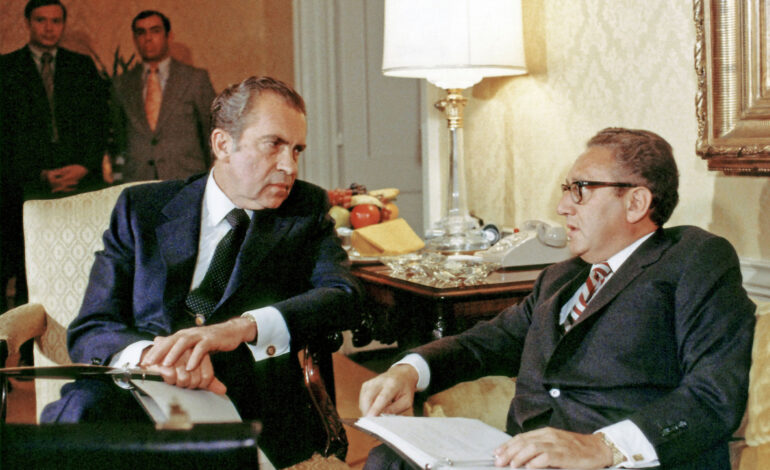New Documentary on Henry Kissinger Revisits Controversial Legacy

The new documentary titled American Experience: Kissinger, which aired on October 27, 2023, provides a retrospective look at the life and career of former U.S. Secretary of State Henry Kissinger. While the film revisits significant historical events from the Vietnam War era, including the so-called “ping-pong diplomacy,” it has drawn criticism for its lack of depth and failure to address the more troubling aspects of Kissinger’s legacy.
Documentary’s Focus and Critiques
The documentary primarily chronicles Kissinger’s role during President Richard Nixon‘s administration, highlighting key moments such as the opening of diplomatic relations with China and the controversial Vietnam War policies. However, viewers seeking new insights may find the film lacking. Critics argue that it largely serves as a recap of Kissinger’s achievements, without adequately exploring the profound consequences of his decisions on both American society and foreign nations.
For instance, the documentary presents Kissinger’s assertion that ending the Vietnam War was a primary goal for Nixon’s administration to unify the country. Yet, archival evidence suggests that political maneuvering played a significant role in prolonging the conflict, as Nixon and Kissinger timed military withdrawals to coincide with the 1972 presidential election. This approach resulted in the deaths of more than 20,000 American soldiers and countless others affected by the war.
Missed Opportunities for Deeper Analysis
Despite the documentary’s engaging visuals and historical footage, it often misses the chance to delve into the darker aspects of Kissinger’s policies, particularly regarding the U.S. involvement in countries like Cambodia and Bangladesh. Critics note that significant moments from the Nixon tapes, which could provide crucial context, receive minimal attention. For example, the documentary features only a brief and seemingly trivial excerpt from the tapes, failing to capture the gravity of discussions surrounding military strategy and its impact on civilian lives.
Rather than allowing viewers to hear the devastating realities of warfare, the film relies on commentary from Kissinger’s former associates. This approach can obscure the complexities of his decisions and the moral implications they carried. The absence of a thorough examination of Kissinger’s motivations and the consequences of his actions raises questions about the documentary’s aim and its effectiveness in portraying a complete picture of his career.
Moreover, historian Niall Ferguson, who is featured prominently, does not disclose his close ties to Kissinger, potentially biasing the narrative. This lack of transparency may leave audiences questioning the integrity of the analysis presented.
The documentary ultimately raises important historical inquiries about realpolitik and the ethical dilemmas of foreign policy. By glossing over the profound suffering inflicted on countless individuals during Kissinger’s tenure, it risks oversimplifying a complex legacy, failing to fully engage with the darker realities of the era.
In conclusion, American Experience: Kissinger serves as a reminder of the intricate interplay between policy-making and personal ambition, yet it falls short of providing a comprehensive exploration of the ramifications of Kissinger’s actions. As discussions about his legacy continue, it remains crucial for future narratives to address both the triumphs and the tragedies associated with his time in power.






